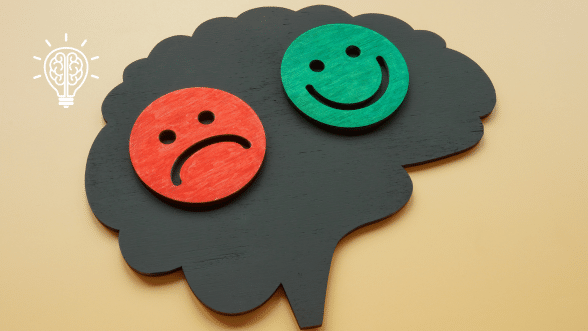What is Emotional Reasoning?
Emotional reasoning stands as a cognitive distortion where individuals conclude that their emotional state accurately represents the truth of an external situation, without considering contrary evidence. It’s a process where feelings dictate perceptions of reality, often clouding judgment with subjective emotional responses rather than objective analysis.
The Pitfalls of Reasoning
Emotional reasoning poses significant challenges as it distorts an individual’s perception of reality, leading to a cycle of negative thinking and emotional distress. This distortion can significantly impact one’s decision-making process, skewing it towards irrational and often detrimental choices. The implications extend into various facets of life, from personal relationships to professional environments, often exacerbating mental health issues like anxiety and depression. Understanding why emotional reasoning is problematic underscores the importance of developing strategies to counteract its effects.
Combating Reasoning: Strategies for Clarity
- Identifying Emotional Reasoning Patterns: The first step towards mitigating emotional reasoning is recognizing its presence. This awareness can often illuminate the discrepancy between one’s emotional state and the reality of situations.
- Challenging Thoughts with Factual Evidence: Once identified, it’s crucial to question the validity of conclusions drawn solely from emotions. Asking oneself for concrete evidence that supports or refutes these emotional conclusions can help in reassessing situations more objectively.
- Embracing Mindfulness Practices: Mindfulness encourages an individual to observe their thoughts and emotions without immediate judgment or reaction. This practice fosters a space between feeling and action, allowing for a more measured response that aligns closer with reality.
- Seeking Professional Guidance: Sometimes, the grip of emotional can be challenging to break alone. Professional help, such as cognitive-behavioral therapy (CBT), can offer tools and strategies to understand and alter these cognitive distortions effectively.
Logical vs. Reasoning: Balancing the Scales
Understanding the contrast between logical and emotional reasoning is crucial in navigating the complex landscape of human cognition. While logical reasoning is grounded in facts, data, and objective analysis, emotional reasoning leans heavily on personal feelings and subjective interpretations. Balancing these aspects involves acknowledging the value of emotions in enriching human experience while also recognizing the importance of logic and evidence in making reasoned decisions. Cultivating this balance is key to personal growth, emotional resilience, and effective problem-solving.
Enhancing Emotional Intelligence
Developing emotional intelligence is pivotal in transcending the limitations imposed by emotional reasoning. This involves not only regulating one’s emotions but also understanding and empathizing with the emotions of others. Emotional intelligence facilitates a deeper engagement with the world, informed by both emotional and rational perspectives, leading to more fulfilling interactions and decision-making processes that respect the complexity of human experience.




